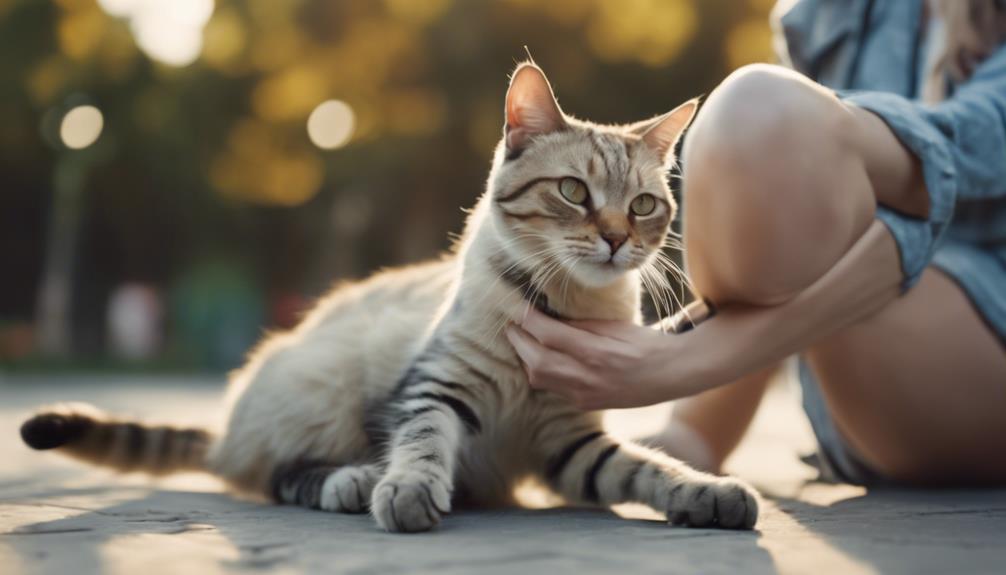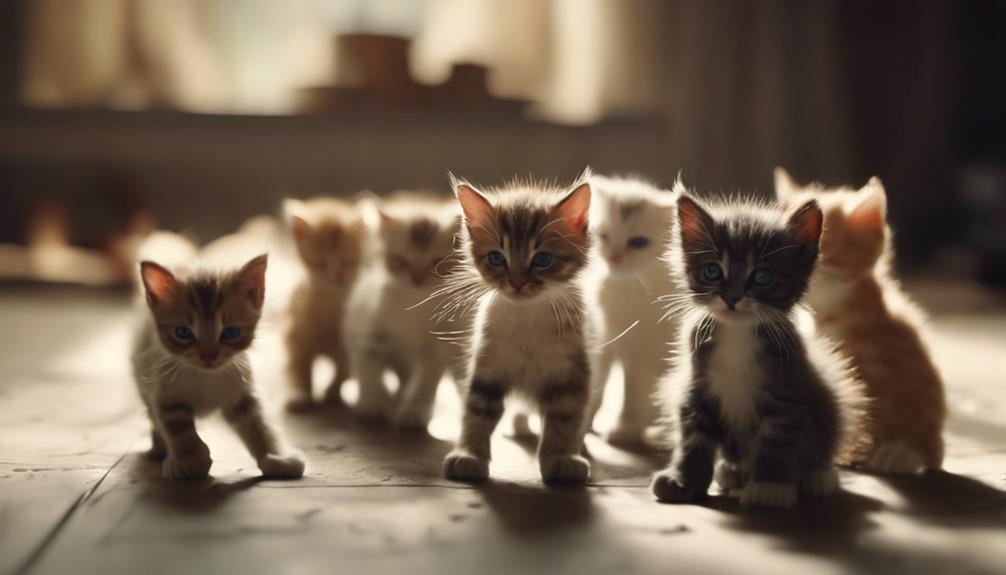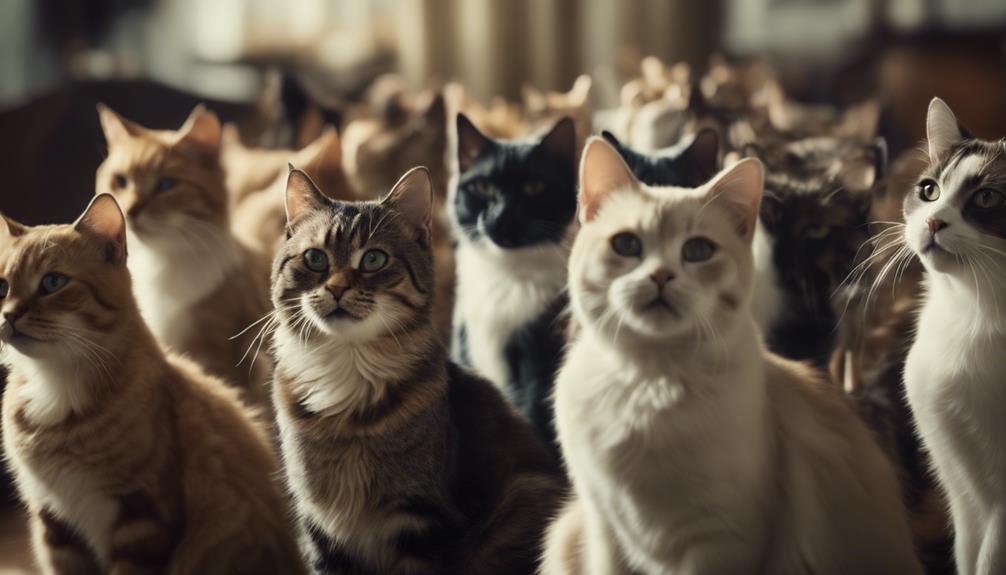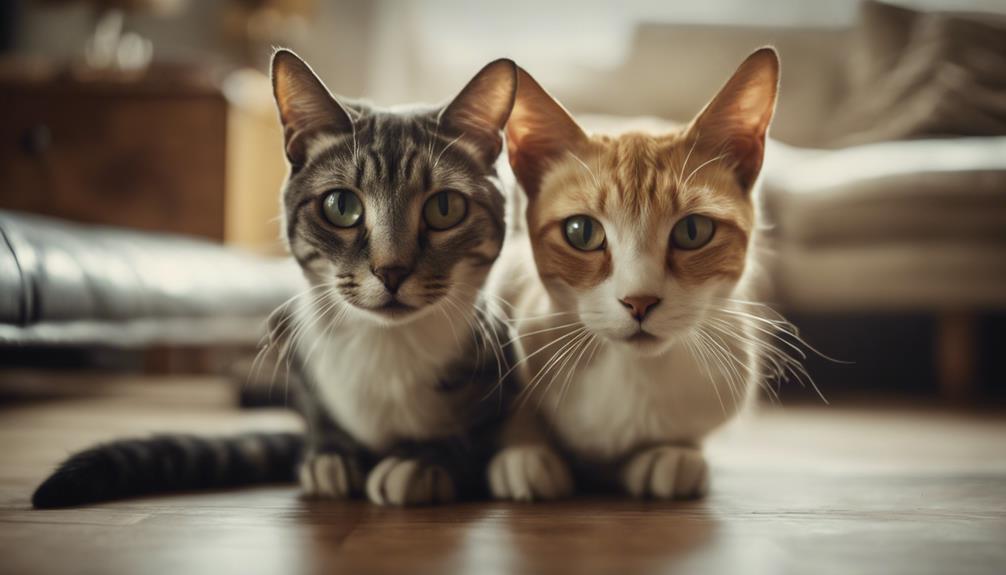Why Some Cats Are More Sociable Than Others

Sociability in cats is influenced by a variety of factors. Genetics play a significant role in determining a cat's personality and sociability. Some breeds are naturally more social and outgoing, while others may be more reserved or independent. Early socialization also plays a crucial role in shaping a cat's sociability. Kittens that are exposed to a variety of people, animals, and environments during their critical socialization period (between 2 and 7 weeks of age) are more likely to grow up to be sociable and well-adjusted cats.
Furthermore, a cat's individual experiences and environment can also impact their sociability. Cats that have positive interactions with humans and other animals are more likely to be sociable and friendly. On the other hand, cats that have had negative experiences or lack proper socialization may be more fearful or aggressive towards people and other animals. Providing a safe and enriching environment, regular social interaction, and positive reinforcement can help improve a cat's sociability and overall well-being.
Genetics and Sociability
Studying the genetic factors influencing sociability in cats reveals valuable insights into their varying levels of social behavior. The debate between nature versus nurture plays a crucial role in understanding how genetics contribute to a cat's sociability. Social behavior genetics delves into the hereditary aspects that shape a cat's inclination towards being social or solitary. Researchers have identified specific genes that may influence sociability in cats, highlighting the genetic component in determining their social behavior.
Through the lens of social behavior genetics, it becomes apparent that a cat's genetic makeup can predispose them to certain social tendencies. Factors such as breed-specific traits and genetic predispositions can significantly impact a cat's sociability. Understanding the interplay between nature and nurture is essential in comprehending why some cats exhibit more sociable behaviors than others. By studying the genetic underpinnings of sociability in cats, researchers can provide valuable insights into how genetic factors can influence and predict a cat's social behavior.
Early Socialization and Bonding

Early socialization is vital for shaping a cat's behavior and sociability. The interactions and experiences during this time greatly influence a cat's comfort with humans and other animals. Building a strong bond in the early weeks can foster a deeper and more trusting relationship between a cat and its human companions.
Socialization Impact on Behavior
Socialization plays a crucial role in shaping the behavior of cats, particularly in their early stages of development, influencing their sociability and bonding tendencies. The socialization techniques and bonding processes implemented during this critical period significantly impact a cat's sociability development and how they form relationships with humans and other animals. Environmental factors such as exposure to various stimuli, interactions with different individuals, and positive experiences can all contribute to a cat's social skills and comfort levels in social settings. Early socialization helps kittens learn appropriate behaviors, communication cues, and build trust, which can lead to more sociable and well-adjusted adult cats.
| Socialization Techniques | Bonding Processes |
|---|---|
| Exposure to stimuli | Building trust |
| Interactions with various individuals | Communication cues |
| Positive experiences | Learning appropriate behaviors |
Bonding and Relationship Development
Bonding and relationship development in cats is significantly influenced by early experiences and interactions that shape their sociability and comfort levels in social settings. Cats' behavior development and the formation of social bonds are crucial in establishing strong connections with humans and other animals. Communication cues, such as body language and vocalizations, play a vital role in expressing their emotional connections.
Here are five key factors that contribute to bonding and relationship development in cats:
- Positive interactions during the kitten's early weeks.
- Exposure to various stimuli and environments.
- Consistent and gentle handling by caregivers.
- Opportunities for play and exploration.
- Building trust through routine care and feeding schedules.
Environmental Enrichment and Interaction

What factors influence the sociability of cats in terms of environmental enrichment and interaction? Cats' sociability can be greatly impacted by their environment and the level of interaction they receive. Providing enrichment activities and opportunities for play therapy can significantly enhance a cat's social skills and overall sociability. Enrichment activities such as puzzle feeders, interactive toys, and climbing structures can stimulate a cat's mind and encourage social interactions. Play therapy, which involves interactive play sessions with their owners or other animals, can help cats build trust, improve their social behavior, and strengthen their bond with humans.
| Enrichment Activities | Play Therapy | Interaction with Other Animals |
|---|---|---|
| Puzzle feeders | Interactive toys | Play sessions |
| Climbing structures | Bonding activities | Socializing |
| Interactive games | Hide and seek | Supervised introductions |
Breed Characteristics and Personality Traits

Certain cat breeds exhibit distinct personality traits due to genetic factors, influencing their sociability and behavior.
The socialization experiences of different breeds also contribute significantly to their varying levels of sociability.
Understanding the interplay between breed characteristics and genetic predispositions can provide insights into why some cats are inherently more sociable than others.
Breed Influence on Personality
Some cat breeds exhibit distinct personality traits that can influence their sociability levels and interactions with humans. Understanding how breed influences personality traits is crucial for selecting a cat that fits one's lifestyle.
Here are some key points to consider:
- Siamese cats are known for their vocal nature and high levels of activity.
- Maine Coons are friendly, sociable, and enjoy interacting with humans.
- Persian cats tend to be calm, gentle, and affectionate companions.
- Bengal cats are energetic, intelligent, and playful, requiring mental stimulation.
- Scottish Folds are typically sweet-natured, adaptable, and enjoy being around people.
Socialization and Behavior
Breed characteristics play a significant role in shaping the socialization and behavior of cats. Feline friendships and social cat behavior are influenced by these traits. Some breeds are more inclined towards sociable interactions and specific behavior patterns, while others may be more reserved or independent. Understanding these breed-specific tendencies can help cat owners provide suitable environments and interactions for their pets. Below is a table highlighting some common cat breeds and their typical socialization and behavior characteristics:
| Breed | Sociability | Behavior Patterns |
|---|---|---|
| Siamese | Highly sociable | Vocal and affectionate |
| Maine Coon | Friendly | Playful and social |
| British Shorthair | Reserved | Calm and independent |
Genetic Factors in Sociability
Genetic factors intricately shape the sociability of cats, influencing their breed characteristics and distinct personality traits. Inherited traits play a significant role in determining how sociable a cat may be, with genetic variations across breeds leading to differences in behavior.
Sociability studies have shown that certain gene expressions can predispose cats to be more outgoing or reserved. Behavioral genetics delve into the intricate mechanisms by which genes influence social tendencies in felines, shedding light on the hereditary aspects of sociability.
Understanding the genetic underpinnings of sociability can provide valuable insights into how to cater to the specific needs of different cat breeds.
- Inherited traits influence sociability
- Genetic variations impact behavior
- Sociability studies reveal gene predispositions
- Behavioral genetics unravel gene-behavior relationships
- Insights into specific breed needs
Health and Well-being Impact

Understanding the factors influencing the sociability of cats can provide valuable insights into their overall health and well-being. Mental health and social interactions play a significant role in determining how sociable a cat may be. Cats that are more sociable tend to exhibit better mental well-being and engage more positively in social interactions with humans and other animals.
| Factors Influencing Sociability | Impact on Health and Well-being |
|---|---|
| Socialization | Cats that are well-socialized from a young age tend to have lower stress levels and better overall mental health. |
| Physical health | Cats in good physical health are more likely to be sociable and engage in playful interactions. Regular veterinary check-ups are essential to maintain their well-being. |
| Environmental enrichment | Enriching a cat's environment with toys, scratching posts, and interactive play can improve their mental stimulation and overall happiness. |
Human-Cat Relationship Dynamics

The dynamics of the relationship between humans and cats play a crucial role in shaping the sociability of felines. Understanding feline communication dynamics and social interaction is key to fostering a strong bond between humans and their cats. Here are some essential aspects to consider in human-cat relationship dynamics:
- Body Language: Cats communicate a lot through their body language, such as tail position, ear orientation, and eye contact. Understanding these cues can help improve communication and strengthen the bond.
- Positive Reinforcement: Rewarding desirable behaviors with treats or affection can encourage positive interactions and reinforce the human-cat relationship.
- Respect Boundaries: Respecting a cat's need for space and allowing them to approach on their terms can build trust and comfort in the relationship.
- Playtime: Engaging in interactive play sessions can enhance the bond between humans and cats, providing mental stimulation and physical activity.
- Consistency: Establishing a routine for feeding, play, and interaction can create predictability and security for cats, strengthening the relationship over time.
Training and Behavior Modification

Training and behavior modification techniques play a crucial role in shaping a cat's responses to stimuli and interactions with their environment. Behavior modification techniques involve using positive reinforcement, such as rewards like treats or toys, to encourage desired behaviors and discourage unwanted ones.
Cats can be trained using clicker training, where a clicking sound marks the desired behavior, followed by a reward. This method helps cats associate the click with a reward, making them more likely to repeat the behavior. Training methods also include desensitization and counterconditioning, which help cats overcome fear or anxiety towards certain stimuli by gradually exposing them to the trigger in a controlled setting while providing positive experiences.
Consistency, patience, and understanding the individual cat's personality are key factors in successful behavior modification. By utilizing these techniques effectively, cat owners can help their feline companions become more sociable, confident, and well-adjusted pets.
Frequently Asked Questions
How Can a Cat's Sociability Change Over Time as They Age?
As a cat ages, its sociability can change due to various factors. Socialization techniques, environmental influences, and age-related shifts all play a role in how a cat's behavior changes over time, impacting its sociability.
Are There Specific Factors That Can Cause a Normally Sociable Cat to Become More Withdrawn or Aloof?
Genetics and environmental factors play crucial roles in a cat's sociability. Changes in routine, trauma, or health issues can cause a once sociable cat to become withdrawn or aloof. Understanding these influences is vital for cat owners.
Can a Cat's Sociability Be Influenced by the Presence of Other Pets in the Household?
A cat's sociability can be influenced by the presence of other pets in the household. The impact of companionship and environmental influences play a significant role in shaping a cat's social behavior, akin to how siblings can influence a child's development.
Are There Certain Breeds of Cats That Are Typically More Sociable Than Others?
Certain cat breeds, like the Siamese and Maine Coon, are generally more sociable due to their inherent characteristics. Socialization plays a crucial role in shaping a cat's personality traits, regardless of breed.
What Role Does Gender Play in a Cat's Sociability Levels?
Gender can influence a cat's sociability levels due to genetic predispositions and environmental influences. Behavioral training and socialization techniques can also play a role in shaping a cat's sociable nature, regardless of gender.










